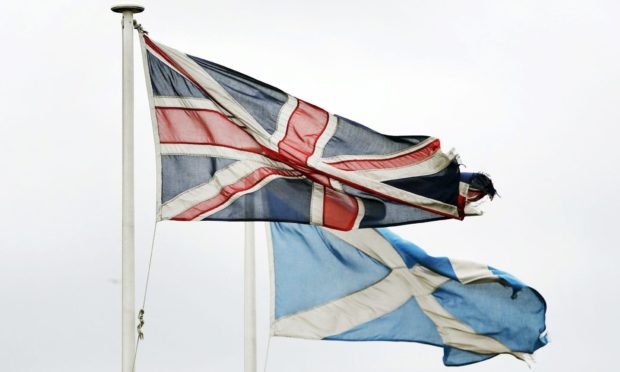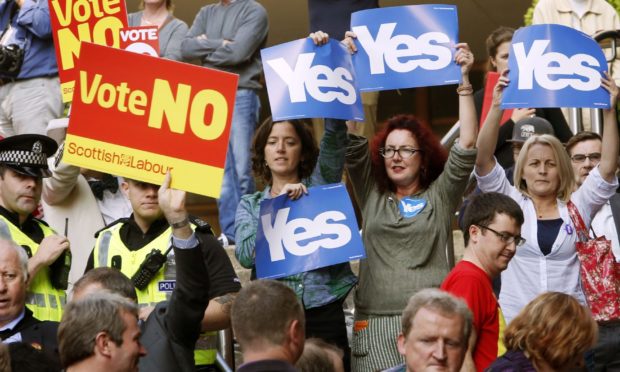New evidence suggests Scottish independence campaigners should focus on energising their own support rather than trying to convince No voters to switch to Yes.
Professor Rob Johns said a huge survey had found that the unionist side remains in “pole position” ahead of another referendum because it was “very deeply entrenched”.
The Essex University expert is part of the team that has been conducting the Scottish Election Study, surveying about 4,000 voters before and after last month’s poll.
It has found that while 29% of Scots said they would “definitely vote Yes” in the next referendum, there were 37% who would “definitely vote No”.
Professor Johns, who co-authored a book on the rise of the SNP, believed that while the opinion polls remained neck-and-neck, this strength of opposition to independence represented a “small but appreciable advantage” to the pro-UK cause.
The study has also found evidence that a similar proportion of voters had changed their mind on the constitutional question, with 16.4% of Yes supporters from 2014 now saying No, while 16.6% had gone in the opposite direction.
In a blog post, Professor Johns wrote: “There are just about enough voters in the middle ground for either side to win a second independence referendum, but the Yes campaign’s task looks harder based on these data – especially the contest happens sooner than later.”
Asked about the study, he said: “The No side looks very deeply entrenched, they look hard to shift, and put in terms of a referendum campaign, it suggests that if Yes is going to succeed it is going to be by getting people to the polls who are potential Yes voters.
“It doesn’t look easy to shift lots of current No voters.
“Turnout obviously was sky high in 2014, but that still left 15% of people who hadn’t voted, and they tend to be from areas and social groups that are more Yes, they tend to be younger people and they tend to be poorer people.
“It won’t be easy getting them to the polls but they are probably an easier win for Yes than trying to convince what looked like dyed in the wool No voters.”
The No side looks very deeply entrenched, they look hard to shift, and put in terms of a referendum campaign, it suggests that if Yes is going to succeed it is going to be by getting people to the polls who are potential Yes voters.”
Prof Johns said the findings had been surprising, in some ways, and that they showed that strength of feeling could not always be measured by levels of activism and other factors.
“I was surprised in the sense that ever since 2012 or 2013 the impression is very much that Yes supporters are more vocal, more passionate, more committed-seeming than No supporters, who are often seen as this kind of silent just-about-majority, but who would prefer not to talk about it and for the whole thing to go away,” he said.
“So you might assume from that that Yes voters might feel more committed, more determined.
“But on the other hand, we found, even back in 2014 when we did a referendum study, we found something similar which was that No voters might not have said much about it, but by God they were damn sure they were No voters.
“It really matches this pattern that somebody might not be vocal, or particularly involved, or participating, but that doesn’t stop them really doubling-down, and being entrenched in their opinions.”

